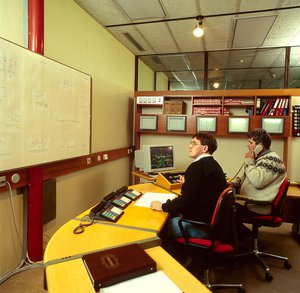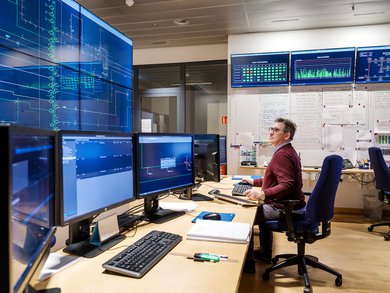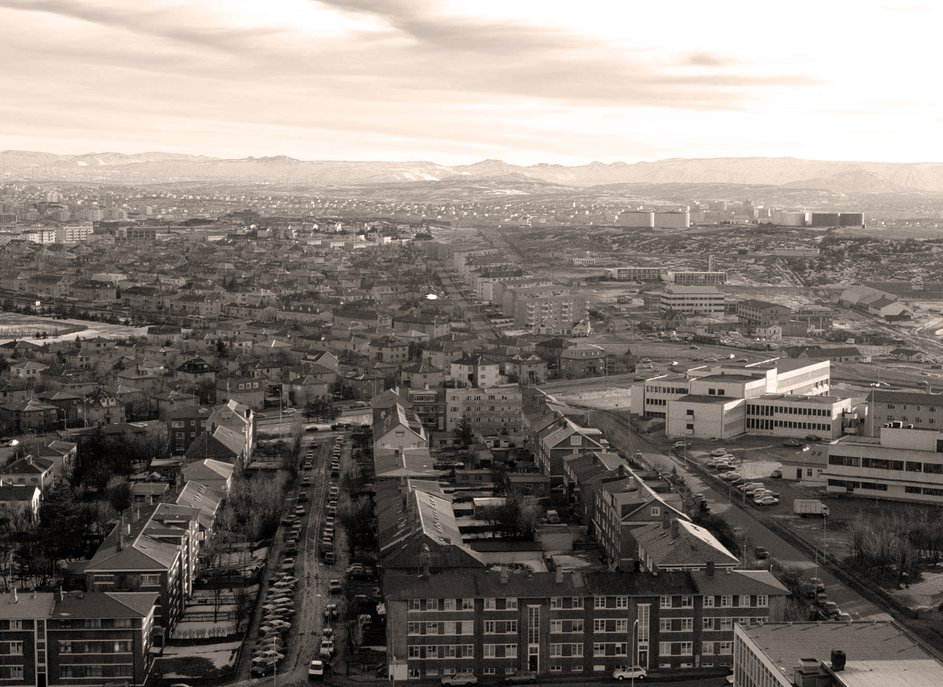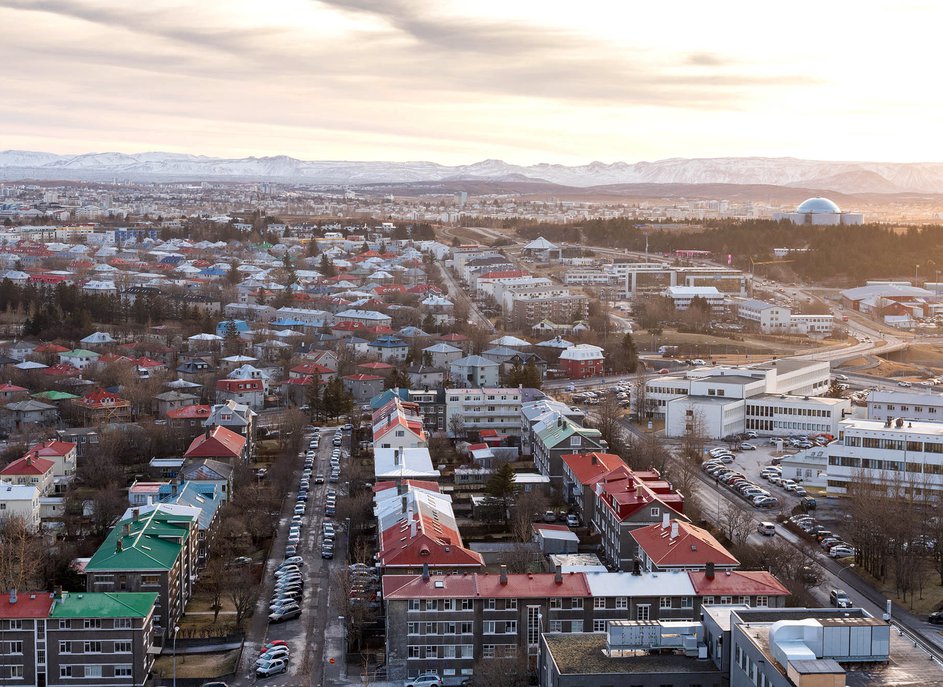Society
Reykjavik Energy, Veitur Utilities, ON Power and Reykjavik Fibre Network, are responsible for ensuring public access to potable water, sewerage system, electricity, district heating and a fibre network. The most recent subsidiary, Carbfix, battles the climate crisis. The reliability of these basic services at an affordable price and customer satisfaction are the Group's main corporate social responsibilities. However, it is not only important to provide these services, but also how these services are rendered.
Reykjavik Energy Group aims to create a desirable workplace, and views skilled and happy staff as a prerequisite to achieving this goal. The Group is large, by Icelandic standards, hence the working practices can have widespread impact on the community. Reykjavik Energy Group aims to set high standards, and continuously looks for ways to best serve its corporate social responsibility.
The Group's subsidiaries track customer satisfaction by performing regular service surveys. The outcome forms an index, and its trend from 2017 to 2020 can be seen below.
Customer satisfaction 2017-2020
*Reykjavik Fibre Network's measurements of customer satisfaction were changed in 2019. Since then, in-house calls are made to approximately 100 customers every week, inquiring about services and contentment. In 2020, the number of calls were 5,067, but 4,804 in 2019.
ON Power tops Icelandic Customer Satisfaction second year running
According to ON Power's survey, customer satisfaction increased from 2019 to 2020. The Icelandic Customer Satisfaction rated ON Power the best Icelandic electric power supplier, second year running. The results were presented in January 2021. In addition, ON Power's score increased from 2019 to 2020 in this survey.

Reliability of the utilities
Veitur Utilities uses a tried and tested method for measuring the continuity of supply. The total disruption time for each customer is added up and then divided between all the customers in the utility in question. Veitur Utilities adopted this method for district heating in 2015, and for the water utility in 2016. The graph is calculated on basis of sudden abruptions, when customers cannot be informed in advance. An unprecedented year-on-year increase in the use of hot water reduced its reliability of supply in 2020.
Veitur Utilities' tariffs' development
Since Reykjavik Energy Group was legally obliged to unbundle its operations, at the beginning of 2014, tariffs for licenced services have either fallen considerably or remained virtually unchanged in real terms. On January 1, 2014, the distribution of electricity cost was ISK 4.24/kWh, but on January 1, 2021 it was down to ISK 3.91/kWh. At the same time the consumer price index has risen by 17.8% and the wage index by 60.3%. On January 1, 2014, the tariff for water supply was ISK 213.05/m2 and on January 1, 2021 ISK 207.71/m2. The graph below shows how Veitur Utilities' tariffs have developed since the beginning of 2014 compared to the CPI, which is shown as a horizontal line. The real term reduction in electricity distribution cost is 24%, water tariffs 19%, district heating tariffs 3%, but during the period, sewerage tariffs increased by 3% in real terms.
Dvelopment of tariffs for licensed services 2014-2020 compared to CPI
Job satisfaction
Reykjavík Energy Group and its subsidiaries have undergone considerable changes in recent years. According to regular workplace analysis, job satisfaction has increased, and has been measured as high since 2014. The year 2020 was unusual, due to the pandemic, and it certainly had an effect on the workplace. Nevertheless, job satisfaction increased from the year before, and is considered one of the Group's strengths.
Tax footprint
KPMG has compiled Reykjavik Energy Group's tax footprint for the year 2020. The tax footprint consists of taxes that are charged to the Group's operations and the taxes that the companies within it collect and pay to the state, municipalities and pension funds.
In the year 2020, the Group's tax footprint amounted to ISK 8,785 million. KPMG's report is attached (IS).


Rúnar Svavar Svavarsson, electrical engineer, and Gunnar Aðalsteinsson are sitting in front of a one-line diagram of the electric grid in Reykjavík in 1989. Rúnar still works for Veitur Utilities and in the new photo he is in front of a huge screen that shows the electric grid in detail and allows for remotely controlling large parts of it.


